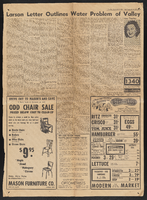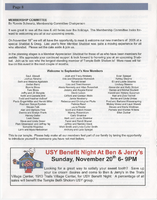Search the Special Collections and Archives Portal
Search Results

Meeting minutes for Consolidated Student Senate University of Nevada, Las Vegas, August 29, 1994
Date
1994-08-29
Archival Collection
Description
Includes meeting agenda and minutes. CSUN Session 24 Meeting Minutes and Agendas.
Text
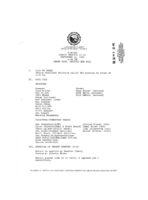
Meeting minutes for Consolidated Student Senate University of Nevada, Las Vegas, September 14, 1989
Date
1989-09-14
Archival Collection
Description
Includes meeting agenda and minutes. CSUN Session 19 Meeting Minutes and Agendas.
Text
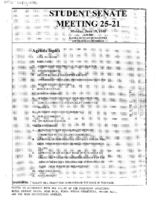
Meeting minutes for Consolidated Student Senate University of Nevada, Las Vegas, June 19, 1995
Date
1995-06-19
Archival Collection
Description
Includes meeting agenda, minutes, and a lightening survey. CSUN Session 25 Meeting Minutes and Agendas.
Text

Meeting minutes for Consolidated Student Senate University of Nevada, Las Vegas, August 07, 1995
Date
1995-08-07
Archival Collection
Description
Includes meeting agenda and minutes. CSUN Session 25 Meeting Minutes and Agendas.
Text
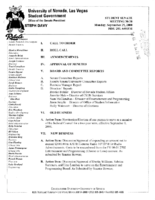
Meeting minutes for Consolidated Student Senate, University of Nevada, Las Vegas, September 25, 2000
Date
2000-09-25
Archival Collection
Description
Includes meeting minutes and agenda. CSUN Session 30 (Part 2) Meeting Minutes and Agendas.
Text
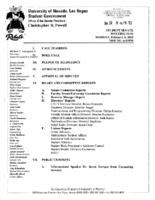
Meeting minutes for Consolidated Student Senate, University of Nevada, Las Vegas, February 03, 2003
Date
2003-02-03
Archival Collection
Description
Includes meeting minutes and agenda, along with additional information about letters. CSUN Session 33 (Part 1) Meeting Minutes and Agendas.
Text

11th Anniversary Issue of the Sands Times magazine from the Sands Hotel and Casino, December 1963
Date
1963-12
Archival Collection
Description
The 11th anniversary issue of the Sands Times from the Sands Hotel and Casino in Las Vegas, Nevada. Headlines in the magazine include: "If It Happens in Vegas It's Usually at the Exciting Sands Hotel", "Sands Casino Execs - The Friendliest", "Hosts in Las Vegas!", "New Faces in Sands Family of Stars", "Sands - Grounds for Marriage", "Sands is Convention Executive Center", "Sands Conventions", and "Sands Guests".
Mixed Content
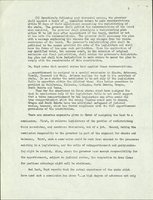
Summary report by the League of Women Voters on Legislative Reapportionment, "The Nevada Reapportionment Decision," October 1965
Date
1965-10
Archival Collection
Description
League of Women Voters statement on legislative reapportionment and redistricting in Nevada.
Text
Pagination
Refine my results
Content Type
Creator or Contributor
Subject
Archival Collection
Digital Project
Resource Type
Year
Material Type
Place
Language
Records Classification

